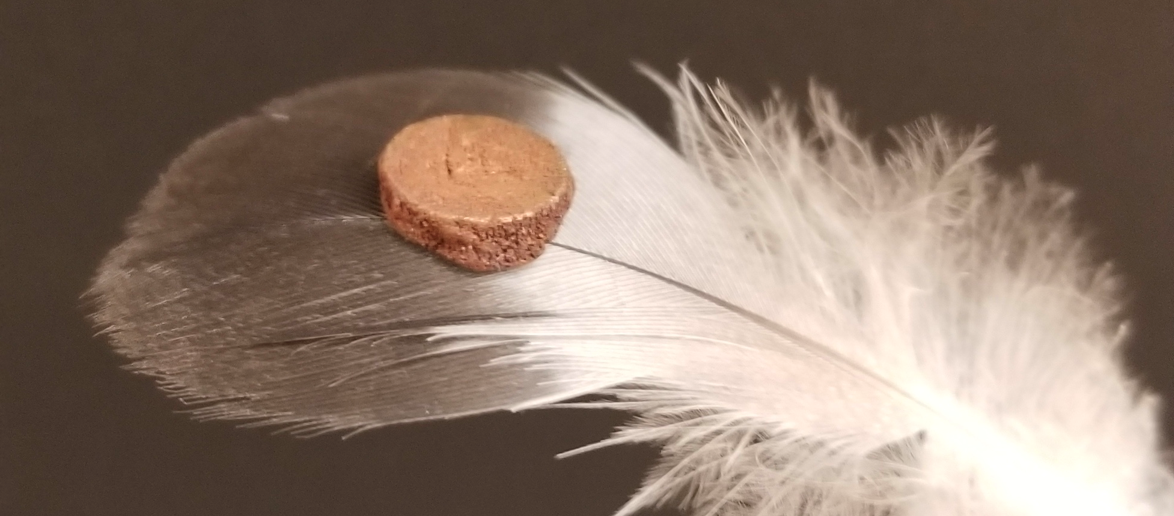Professor, Graduate Students Named Finalists for BARDA-NIOSH Mask Innovation Challenge
Department of Physics professor Kai Liu and Ph.D. students James Malloy (G’22) and Christopher Jensen (G’25) were named one of the 10 Phase 1 Winners, and the only university team selected, for the Biomedical Advanced Research and Development Authority (BARDA) and the National Institute for Occupational Safety and Health (NIOSH) Mask Innovation Challenge. Their facemask design was one of the most novel concepts for next-generation face coverings to protect against respiratory disease pathogens and was selected from over 1,400 designs submitted nationally.
“Our design is a new type of air filtration material based on lightweight nanoporous metal foams that are efficient, breathable, robust, adaptable, cost-effective and can also be cleaned, reused, and recycled,” says Liu.
Making an Improved Mask
Recently, Liu’s group transformed copper nanowires into metal foams, which are more durable and have the potential to effectively filter out ultrasmall particulates and microbes. These copper foams have wide-ranging applications, including reusable face masks and air filtration systems.
Earlier this year, BARDA DRIVe partnered with NIOSH to launch the “Mask Innovation Challenge: Building Tomorrow’s Mask,” which aims to support the development of innovative masks that can protect individuals from respiratory pathogens.
The challenge’s overall goals are to “improve the comfort, utility and protective capabilities of products that are worn during day-to-day activities by the general public when physical distancing is not possible.”
Though the world is beginning to reduce social distancing policies, masks have utility outside of the prevention of COVID-19 as they have been shown to reduce the transmission of other respiratory infections such as the flu. They also provide protection against air pollution, especially for immunocompromised groups.
Currently, the gold standard N95 face masks are difficult to decontaminate and reuse. Their polymer fibers rely on electrostatics, which discharges over time, significantly decreasing the filtration efficiency. The sheer volume of the waste face masks generated during COVID-19 also poses significant environmental challenges, due to a long time it takes for polymer-based materials to decompose.
The copper foams created by Liu and his team of researchers are “light as a feather” and actively filter particulate matter. Feasibility studies have shown that the foams exhibit excellent filtration efficiency for most of the submicron-sized particulates, especially relevant for combating COVID-19 and air pollution.
“The foams can be readily integrated with other mask designs, either as the filtration media themselves, or as inserts or cartridges”, says Malloy. “Our design can also accommodate additional air cleaning mechanisms.”
In the second phase of the challenge which will likely start in the fall, the team will submit a prototype that may be judged on filtration, fit, comfort and ease of manufacturing.
This competition is designed to support the development of mask designs that meet defined performance standards while also overcoming barriers to use. Overall, there is a need to develop better designs, materials, and technologies that are more acceptable to wearers and that ensure quantified measures of performance.
Hear more about this innovation in Liu’s Podcast with UK-based Physics World.
